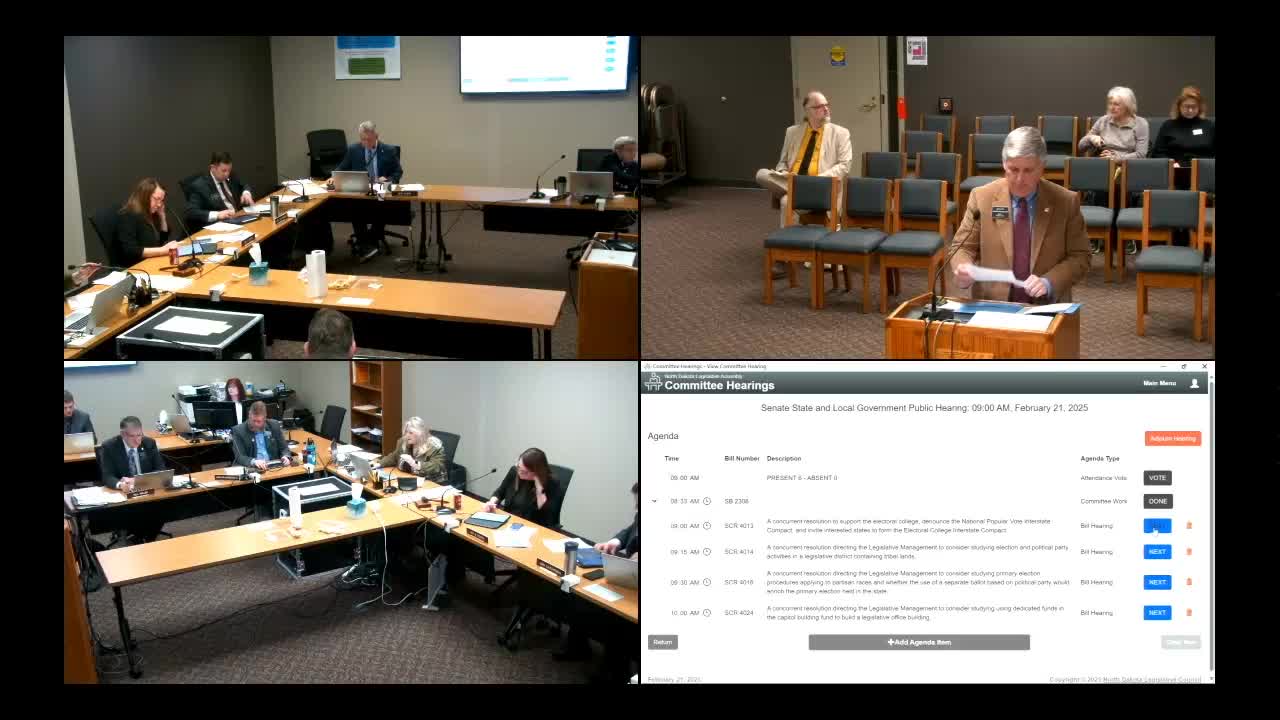Article not found
This article is no longer available. But don't worry—we've gathered other articles that discuss the same topic.
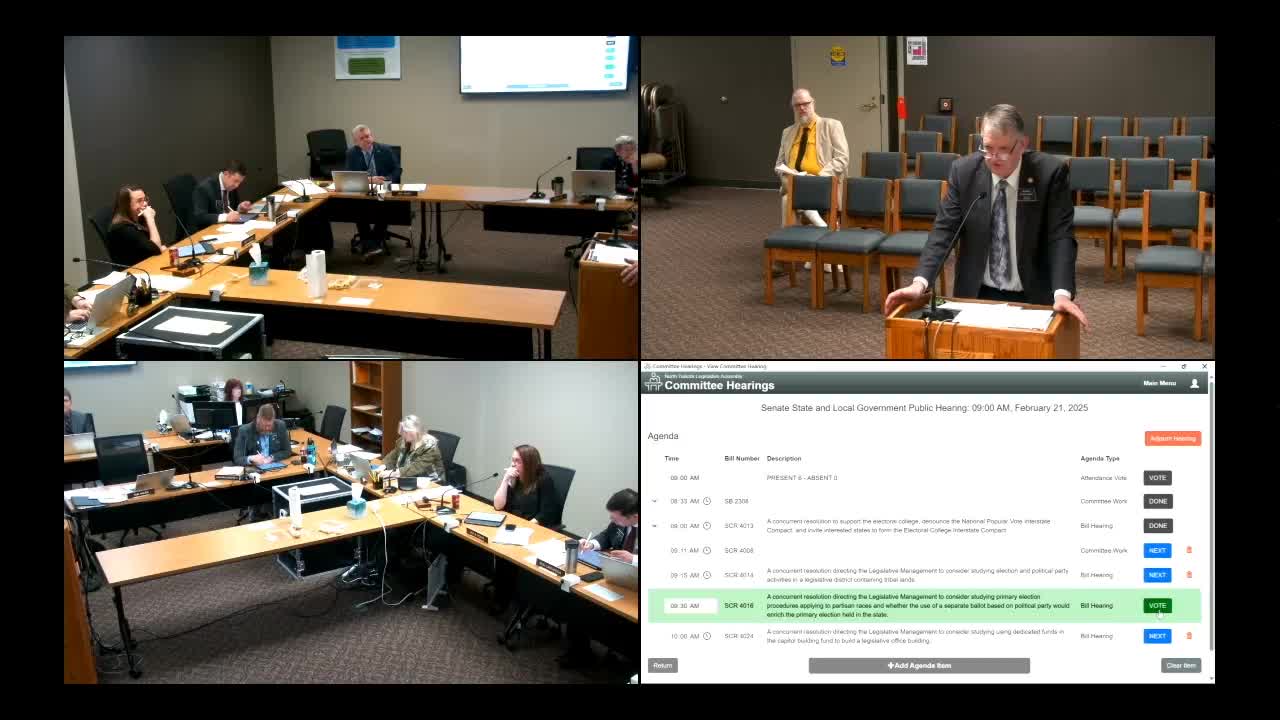
Committee approves study of separate-party primary ballots to examine costs and effects
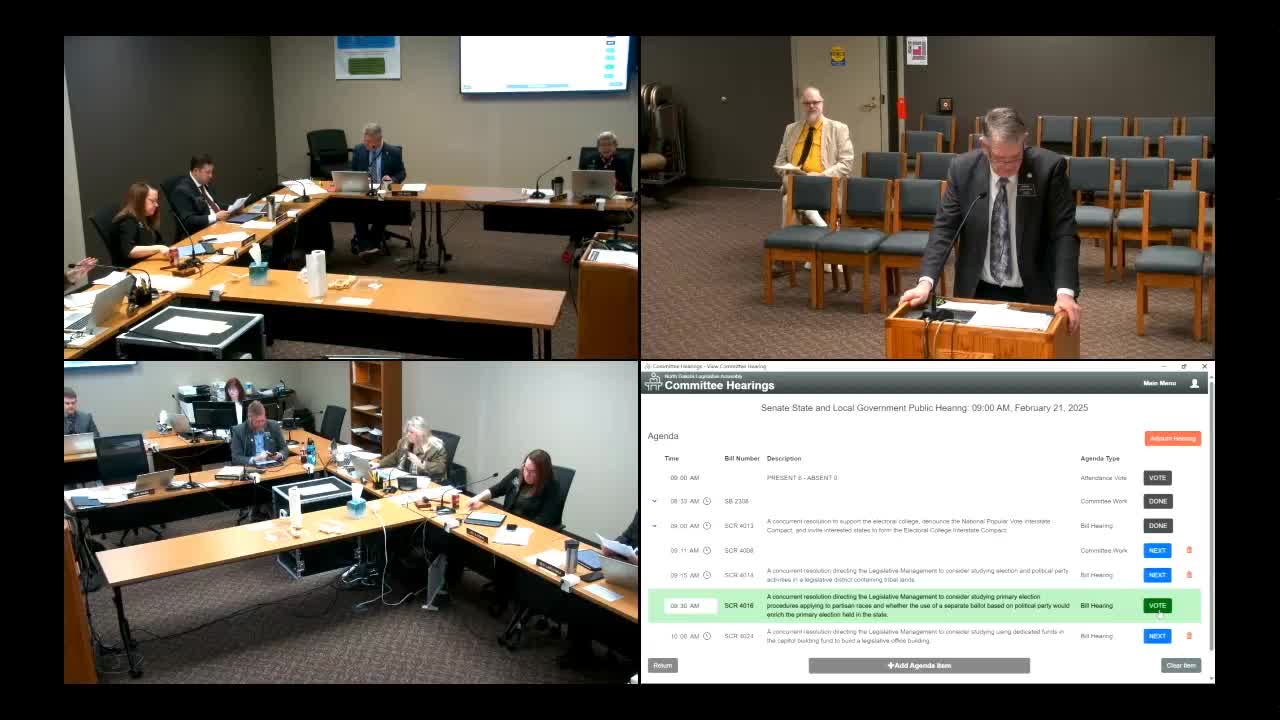
Committee backs study of election and party activity in districts containing reservations after divided testimony
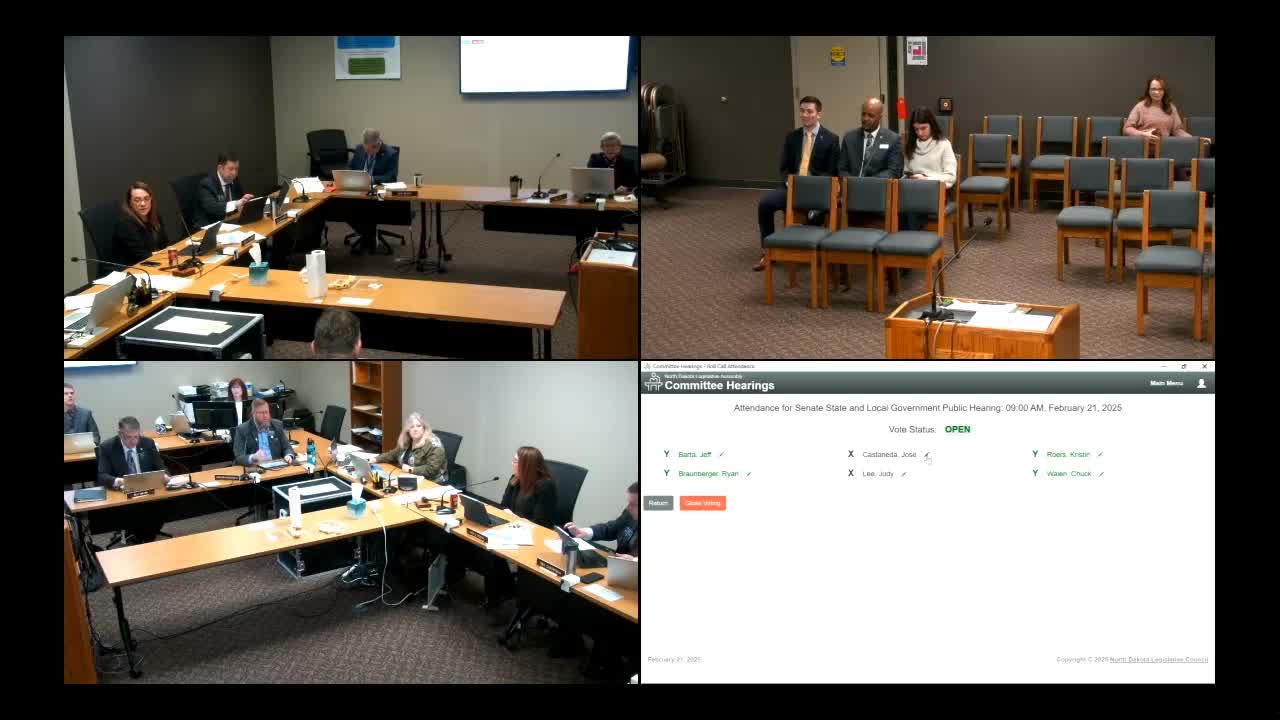
Committee advances broad government-restructuring bill after managers merge amendments, removes soil-classifier board

Committee approves amendment to clarify how partial legislative terms count toward term limits
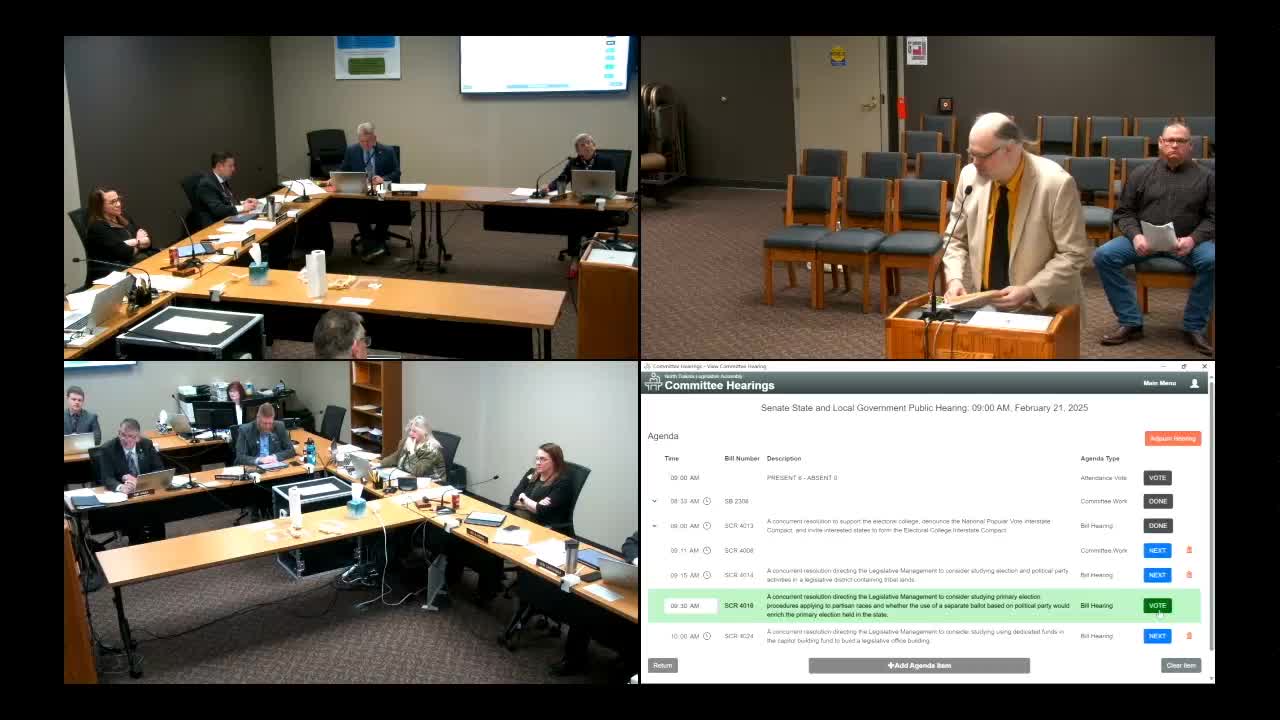
Committee backs study on building legislative office and parking on Capitol grounds
